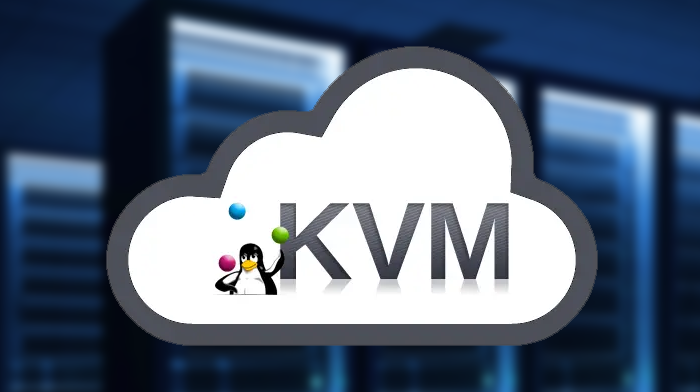In the ever-evolving landscape of web hosting solutions, Virtual Private Servers (VPS) have emerged as a popular choice for businesses and individuals seeking greater control, performance, and scalability. Among the various types of VPS available, KVM (Kernel-based Virtual Machine) VPS stands out for its reliability, flexibility, and advanced virtualization technology. In this comprehensive guide, we’ll delve into the world of KVM VPS, exploring its definition, benefits, drawbacks, and why it’s become a preferred hosting solution for many.
Definition of KVM VPS
Let’s start by breaking down the acronym. KVM stands for Kernel-based Virtual Machine, which is a type of virtualization technology that allows multiple virtual machines (VMs) to run on a single physical server. Unlike traditional VPS solutions that rely on container-based virtualization, KVM VPS utilizes hardware virtualization, which means each VM runs its own independent operating system (OS) kernel.
In simpler terms, KVM VPS creates isolated virtual environments within a single physical server, providing users with dedicated resources, including CPU, RAM, storage, and network connectivity. This level of isolation and resource allocation ensures greater stability, security, and performance for each virtual machine.
Benefits of KVM VPS
Now that we understand the basics, let’s explore the key benefits that KVM VPS brings to the table:
- Enhanced Performance: One of the primary advantages of KVM VPS is its ability to deliver consistent and reliable performance. Since each virtual machine has its own dedicated resources, including CPU and RAM, there is no risk of resource contention or performance degradation caused by other users on the same physical server. This ensures optimal performance for your applications and websites, even during peak traffic periods.
- Isolation and Security: KVM VPS offers a high level of isolation between virtual machines, with each VM running its own independent OS kernel. This means that even if one VM experiences a security breach or software issue, it will not affect the stability or security of other VMs on the same server. Additionally, KVM VPS provides built-in security features such as firewall protection, DDoS mitigation, and intrusion detection, further enhancing the security of your hosting environment.
- Scalability and Flexibility: Another key benefit of KVM VPS is its scalability and flexibility. With KVM VPS, you can easily scale your resources up or down to accommodate changes in traffic, workload, or resource demands. Whether you need more CPU power, additional RAM, or extra storage space, you can quickly upgrade your VPS plan with just a few clicks, without any downtime or disruption to your services.
- Customization and Control: KVM VPS provides users with full root access and administrative control over their virtual servers. This means you have the freedom to install, configure, and customize your operating system, software stack, and server environment according to your specific requirements. Whether you’re hosting a website, running a web application, or setting up a development environment, KVM VPS gives you the flexibility to tailor your hosting environment to suit your needs.
- Reliability and Uptime: Since KVM VPS runs on a virtualized infrastructure, it offers greater reliability and uptime compared to traditional shared hosting environments. With redundant hardware, failover mechanisms, and automated backups, KVM VPS ensures that your services remain available and accessible to your users, even in the event of hardware failures or maintenance downtime.
Drawbacks of KVM VPS
While KVM VPS offers numerous benefits, it’s important to consider some potential drawbacks as well:
- Cost: Compared to shared hosting or other VPS solutions, KVM VPS tends to be more expensive due to its advanced virtualization technology and dedicated resource allocation. However, the additional cost is often justified by the increased performance, reliability, and security that KVM VPS provides.
- Technical Complexity: Managing and maintaining a KVM VPS requires a certain level of technical expertise and proficiency, especially for tasks such as server administration, software configuration, and troubleshooting. While many hosting providers offer managed KVM VPS plans with additional support and assistance, users may still encounter challenges related to server management and optimization.
- Resource Limitations: While KVM VPS offers dedicated resources, including CPU, RAM, and storage, there are still limitations based on the physical hardware of the underlying server. If your resource requirements exceed the capabilities of your VPS plan, you may experience performance issues or the need to upgrade to a higher-tier plan with more resources.
- Dependency on Hosting Provider: As with any hosting solution, your experience with KVM VPS may depend on the quality and reliability of your hosting provider. It’s essential to choose a reputable provider with a track record of delivering reliable performance, responsive support, and transparent pricing. Additionally, you should consider factors such as data center location, network connectivity, and service level agreements (SLAs) when selecting a KVM VPS provider.
Conclusion
In conclusion, KVM VPS offers a powerful combination of performance, security, scalability, and flexibility, making it an ideal hosting solution for businesses, developers, and individuals with demanding hosting requirements. Whether you’re running a high-traffic website, hosting mission-critical applications, or building a development environment, KVM VPS provides the reliability and control you need to succeed in today’s digital landscape. By understanding the benefits and drawbacks of KVM VPS, you can make an informed decision that aligns with your goals and requirements, empowering you to unlock the full potential of your online presence. Choose KVM VPS, and embark on a journey of digital innovation and success with confidence and clarity.


